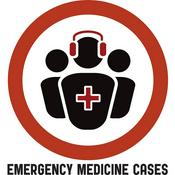469 episodes
- Mark Cuban, entrepreneur, investor, and cofounder of the Mark Cuban Cost Plus Drug Company, joins JAMA Editor in Chief Kirsten Bibbins-Domingo, PhD, MD, MAS, to discuss the role of pharmacy benefit managers, insurance formularies, and opaque pricing practices that shape how most Americans access prescription drugs. Hear why he thinks doctors are the good guys in a broken system.
Related Content:
Pharmaceutical Pricing—JAMA Talks With Mark Cuban - Opioid use disorder is the third most prevalent substance use disorder worldwide. Author Alexander Walley, MB, MSc, of Boston Medical Center and Boston University joins JAMA Deputy Editor Kristin Walter, MD, MS, to discuss the efficacy, safety, and practical considerations of treating patients with medications for opioid use disorder, opioid withdrawal, and opioid overdose.
Related Content:
Medications for Opioid Use Disorder, Opioid Withdrawal, and Opioid Overdose - Ovarian cancer may be prevented with removal of the fallopian tubes during pelvic or select abdominal surgery in eligible women. This procedure, opportunistic salpingectomy, can be offered to more eligible women. Author Jurgen M. Piek, MD, PhD, of the Catharina Cancer Institute discusses this and more with JAMA Deputy Editor Linda Brubaker, MD, MS.
Related Content:
Opportunistic Salpingectomy for Prevention of Tubo-Ovarian Carcinoma - IgA nephropathy is a chronic kidney disease involving deposition of IgA-containing immune complexes in the glomerulus, which often causes kidney failure within 10 to 20 years. Author Michelle Marie O'Shaughnessy, MB, BCh, BAO, MS, of Galway University joins JAMA Deputy Editor Kristin Walter, MD, MS, to discuss the symptoms, risk factors, diagnosis, treatment, and prognosis of IgA nephropathy in adults.
Related Content:
IgA Nephropathy in Adults - Restless legs syndrome is a sleep-related neurologic disorder that causes an overwhelming urge to move the limbs, which can cause substantial sleep disturbance. Author John W. Winkelman, MD, PhD, of Harvard Medical School joins JAMA Deputy Editor Kristin Walter, MD, MS, to discuss the symptoms, risk factors, diagnosis, and treatment of restless legs syndrome.
Related Content:
Restless Legs Syndrome
More Health & Wellness podcasts
Trending Health & Wellness podcasts
About JAMA Clinical Reviews
Author interviews that explore the latest clinical reviews.
Podcast websiteListen to JAMA Clinical Reviews, ZOE Science & Nutrition and many other podcasts from around the world with the radio.net app

Get the free radio.net app
- Stations and podcasts to bookmark
- Stream via Wi-Fi or Bluetooth
- Supports Carplay & Android Auto
- Many other app features
Get the free radio.net app
- Stations and podcasts to bookmark
- Stream via Wi-Fi or Bluetooth
- Supports Carplay & Android Auto
- Many other app features


JAMA Clinical Reviews
Scan code,
download the app,
start listening.
download the app,
start listening.






























